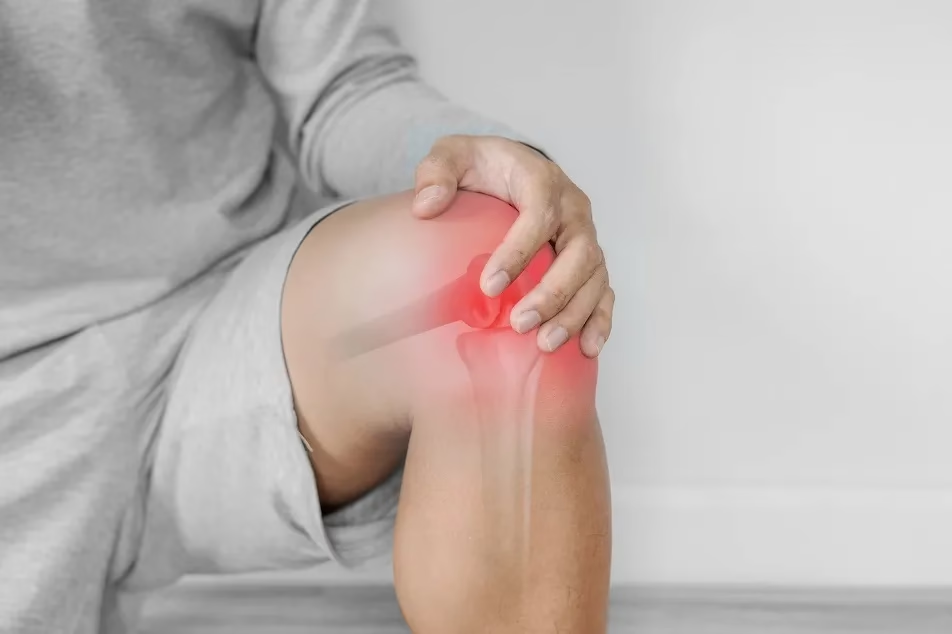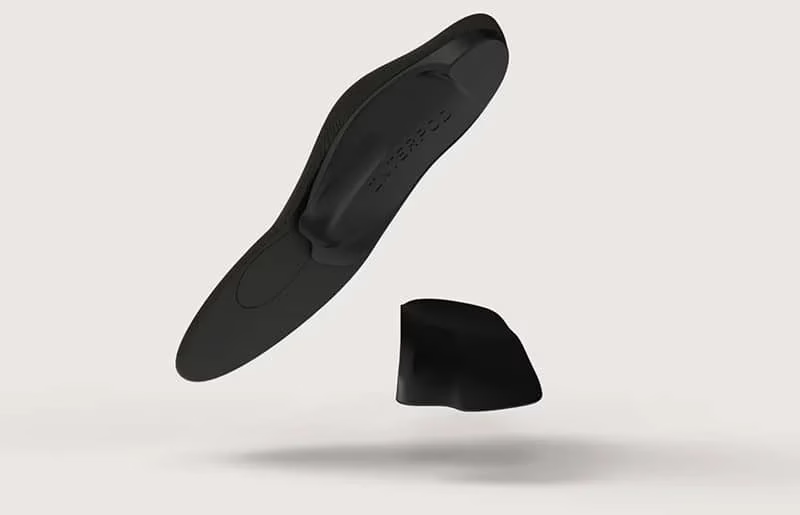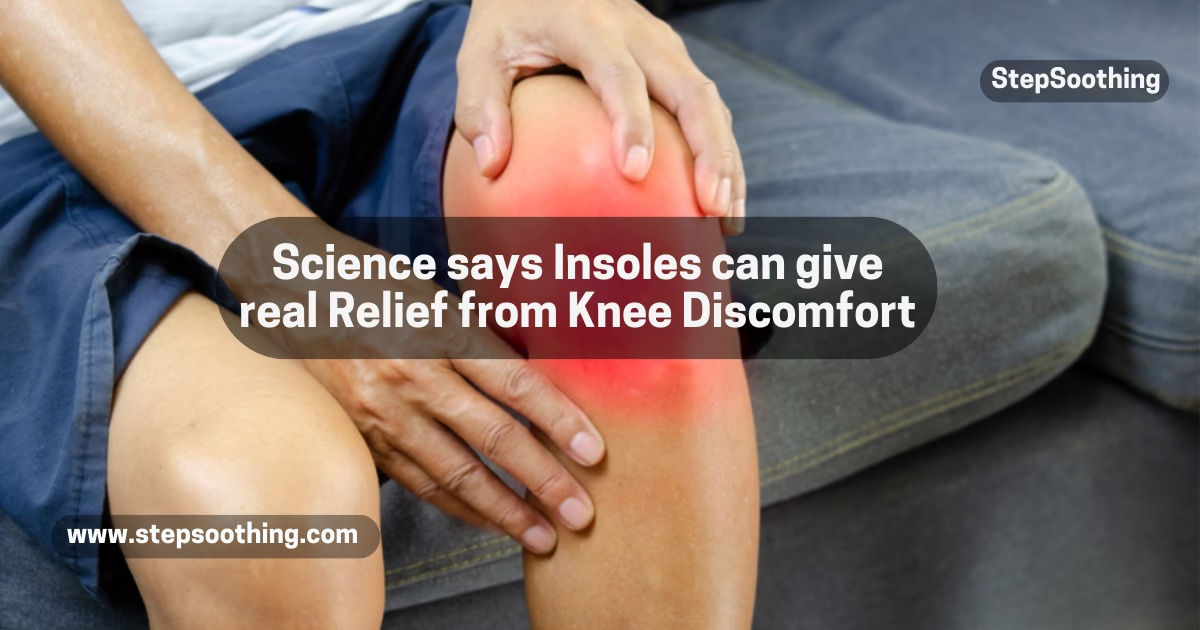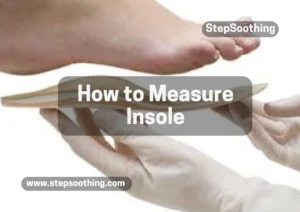Knee pain, particularly in older adults, is a significant issue that affects mobility and quality of life. It can be caused by a variety of factors, including injury, osteoarthritis (OA), and improper foot alignment. As a progressive degenerative disease, knee osteoarthritis (KOA) often leads to increased pain and disability, especially when the medial knee joint bears excessive load. One non-surgical strategy that has gained popularity in managing knee pain is the use of insoles. But how do insoles specifically help in alleviating knee discomfort?
The Role of Insoles in Alleviating Knee Pain: A Comprehensive Guide

Understanding the Connection Between Insoles and Knee Pain Relief
Osteoarthritis of the knee is a common condition among older adults and is associated with pain, loss of physical function, and reduced quality of life (QoL). As the disease progresses, the biomechanical loading on the medial compartment of the knee joint increases, leading to accelerated cartilage degeneration. This worsens pain, disability, and ultimately, the progression of knee osteoarthritis (mKOA). One key aspect of managing this condition is minimizing the excessive load on the knee joint, and insoles can play a vital role in this process.
Insoles, particularly orthopaedic insoles, are designed to provide support, cushioning, and proper foot alignment, which in turn can reduce the stress on the knee joint. When the foot is properly supported, it helps to improve posture and alignment, which can reduce the knee varus moment—a factor that exacerbates medial knee osteoarthritis (mKOA). The support provided by lateral-wedge insoles can be particularly effective in reducing knee adduction moment during activities like walking. This reduces the stress on the medial knee compartment, thereby attentuating knee pain and improving overall knee function.
Related Article:
Clinical Evidence Supporting Insoles for Knee Pain
There is a growing body of clinical evidence that supports the effectiveness of insoles for knee pain relief. Numerous randomized controlled trials (RCTs) and meta-analyses have been conducted to evaluate the impact of insoles on knee osteoarthritis. For instance, a recent systematic review published in February 2021 summarized the outcomes of several studies evaluating the effects of shock-absorbing insoles on pain and function. These studies have shown that insoles can reduce pain levels and improve functionality in patients with chronic, disabling knee pain. Notably, studies have demonstrated that the use of orthotic insoles can reduce pain during walking, stair climbing, and sitting, and it has been shown to increase physical activity in individuals with symptomatic knee osteoarthritis.
In a recent study, the effects of a semi-rigid knee orthosis were assessed in a cohort of 24 participants. The study found significant reductions in pain (41% decrease) and improvements in functional capacity (measured by the six-minute walk test) after six weeks of wearing the orthosis. Additionally, night pain and pain during activities were significantly reduced, showcasing the potential of device-based therapy in improving daily function and enhancing quality of life.

Types of Insoles for Knee Pain
When it comes to selecting insoles for knee pain, it’s essential to choose the right type based on individual needs. Some of the most commonly used insoles include:
- Orthopaedic Insoles: These are custom-designed insoles tailored to individual foot shape and alignment, providing better support and shock absorption. They are particularly helpful for individuals with conditions such as flat feet or high arches, which may contribute to improper foot alignment and exacerbate knee pain.
- Lateral-Wedge Insoles: Designed to correct foot alignment, these insoles are particularly effective in reducing the load on the medial knee joint in patients with medial knee osteoarthritis (mKOA). They help reduce the knee adduction moment, alleviating pain and facilitating improvements in knee function.
- Cushioned Insoles: These provide additional cushioning to absorb shock during walking, which can be beneficial for individuals with knee osteoarthritis who experience discomfort during the stance phase of walking.
The effectiveness of these insoles has been confirmed by randomized controlled trials, which show that they can reduce knee pain and improve overall function, providing a conservative, non-surgical intervention for managing knee osteoarthritis.
Insoles and Footwear: The Perfect Combination for Knee Pain Relief
Insoles work best when paired with appropriate footwear. Properly designed shoes provide the necessary stability and cushioning to support the feet and prevent further strain on the knees. Footwear modifications, such as choosing shoes with firm soles and supportive arches, can complement the benefits of insoles and maximize their effectiveness in managing knee pain. Combining insoles with the right shoes ensures long-term therapy and minimizes the need for more expensive and cumbersome treatments like surgery.
The Role of Technological Advancements in Insoles and Orthotics
Advancements in orthotic design have led to the development of more effective insoles and orthoses. For example, newer devices feature laterally placed metal bars, providing patellar stabilization and improving comfort and compliance. Technological advancements have also led to the introduction of orthoses that integrate thermal sensors to track wear time, improving patient adherence and providing more personalized care. Additionally, some knee orthoses have been developed with adjustable straps to accommodate varus knee alignment, helping to unload the knee joint and reduce pain and discomfort during daily activities.
Integrating Insoles Into a Comprehensive Knee Pain Management Plan
Using insoles for knee pain relief should be part of a broader non-surgical management strategy. The goal of any treatment for knee osteoarthritis is not to cure the disease but to minimize pain, improve knee function, and enhance the quality of life for patients. Other strategies, such as exercise therapy and weight management, are critical in reducing mechanical joint loading and preventing the downward spiral of physical inactivity and lower QoL.
Regular exercise has been shown to have beneficial effects on knee osteoarthritis by reducing muscle weakness, improving functional capacity, and reducing the risk of cardiovascular disease (CVD), which shares similar risk factors, such as age, hypertension, and obesity. As exercise remains a recommended therapy, combining insoles with exercise can provide greater relief for knee pain while helping individuals maintain physical activity.
Final Words
Insoles offer a valuable conservative treatment for managing knee pain, particularly in individuals with knee osteoarthritis. Through their shock-absorbing properties, arch support, and ability to correct foot alignment, they can significantly reduce knee pain, improve knee function, and enhance mobility. However, it is essential to pair insoles with proper footwear and incorporate other non-surgical treatments like exercise and weight management for optimal outcomes. As clinical evidence continues to emerge, further research and long-term clinical trials are needed to fully understand the potential of insoles and orthotics in managing knee osteoarthritis.
By integrating orthopaedic insoles into a comprehensive treatment plan, patients can take proactive steps toward improving their functional capacity, minimizing knee pain, and enhancing their quality of life.
Key Takeaways:
- Insoles, especially lateral-wedge and shock-absorbing insoles, can reduce knee pain and improve function for those with knee osteoarthritis.
- Clinical evidence, including recent randomized controlled trials, supports the use of insoles as an effective non-surgical intervention.
- A combination of proper footwear and orthotic insoles maximizes pain relief and improves mobility in individuals with knee osteoarthritis.
- Technological advancements in orthotic design are enhancing the effectiveness and patient compliance with knee pain management strategies.
People Also Asked
Can insoles really help alleviate knee pain caused by osteoarthritis?
Yes, insoles can help alleviate knee pain, especially in individuals with knee osteoarthritis. Insoles, particularly orthopaedic insoles and lateral-wedge insoles, help correct foot alignment, reduce pressure on the knee joint, and improve overall biomechanics. Studies show that they can reduce knee pain, enhance mobility, and improve quality of life for those with knee osteoarthritis.
What types of insoles are most effective for knee pain relief?
The most effective types of insoles for knee pain relief include orthopaedic insoles, lateral-wedge insoles, and shock-absorbing insoles. These insoles provide additional arch support, cushioning, and alignment correction, which reduce knee adduction moment and stress on the knee joint, leading to pain relief and improved functionality.
How long does it take to see results from wearing insoles for knee pain?
The time it takes to see results from wearing insoles can vary. Some individuals may experience immediate relief, while others might need a few weeks of consistent use. Clinical studies have shown that improvements in pain and functional capacity can be observed within 6 weeks of wearing specialized orthotic insoles, especially when paired with proper footwear.
Are custom-made insoles better than over-the-counter options for knee pain?
Custom-made insoles are often more effective for individuals with specific foot issues, such as flat feet or high arches, that contribute to knee pain. While over-the-counter insoles may provide relief for mild to moderate knee pain, custom orthotic insoles offer more precise support and alignment correction, addressing the underlying biomechanical issues that may exacerbate knee discomfort.
Can insoles be used as a standalone treatment for knee osteoarthritis?
While insoles are an important part of managing knee osteoarthritis, they are most effective when used as part of a broader treatment plan. Combining insoles with exercise therapy, weight management, and proper footwear provides a more comprehensive approach to managing knee pain and improving function. Non-surgical treatments, including insoles, can help reduce pain and slow the progression of the disease but are not a cure.
Related Article:
Can Insoles help Alleviate back pain
do Carbon Fiber Insoles work a comprehensive analysis
Benefits of using Insoles for Foot Health



